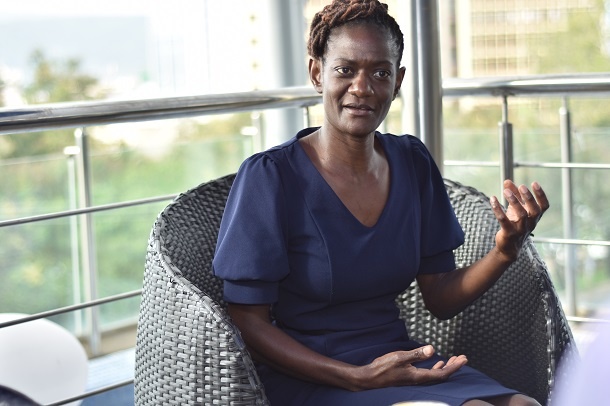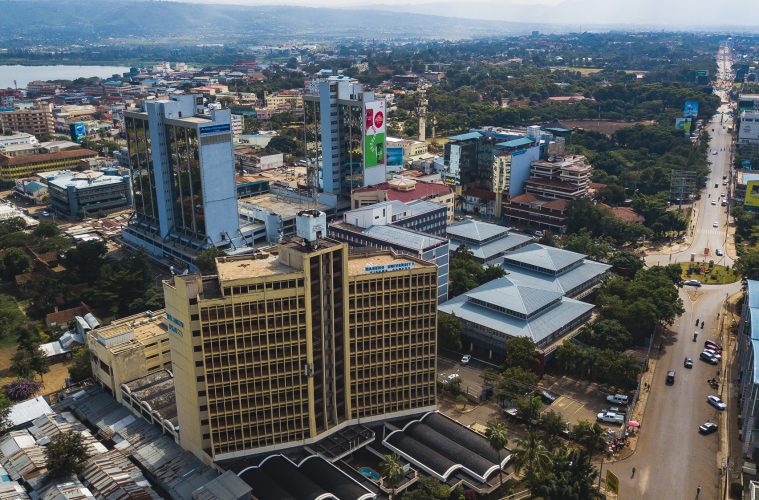There are talks about quality education in almost all academic spheres.
For example, the Sustainable Development Goals (SDG) on ensuring inclusive and equitable quality education for all persons (Goal 4); the Sessional Paper No. 14 of 2012 on Reforming Education, Training and the Basic Education Act (2013); and the African Union’s Science, Technology and Innovation Strategy for Africa (STISA) 2024 emphasizes the need for quality equitable education and places innovation at the heart of education.
The 2010 Kenyan Constitution, on the other hand, provides for free and compulsory basic education to all children. Besides, Articles 43 (1) (f), 53 (1) (b) and 55 (a) in chapter 4 of the constitution, obligates both the state and parents to facilitate quality basic education for all children.
The African Union, in its blueprint Agenda 2063, aspires that by the year 2063, Africa shall be a prosperous continent with the means and resources to drive its development as well as have well educated and skilled citizens underpinned by science, technology and innovation. While such aspirations seem achievable, some experts warn that implementing Agenda 2063 could be hindered by lack of human capacity.
They advise stakeholders to consider investing in capacity building by promoting education in science and technology and to adopt measures that enhance change in the mindset of people and build the capacity of Africa’s human resource through education, research and knowledge acquisition.
Already, some African countries are trying to implement their education goals, continually increasing the number of universities and churning out millions of graduates to the job market. Intriguingly, quite a number of these graduates remain unemployed despite having the necessary academic papers.
In Kenya, for instance, a 2018 survey by the Kenya National Bureau of Statistics (KNBS) states that some seven million Kenyans, representing 15 per cent of the country’s population, were unemployed. While 1.4 million of them have been desperately looking for work, the rest have given up on job hunting and others have gone for further studies.
The Kenyan government believes the antidote is creating a new multifaceted curriculum that better prepares learners for employment – the 2-6-3-3-3, which could accelerate economic growth in sectors like agriculture, construction and fishing.
Stakeholder involvement
Cognizant of the need for a progressive curriculum to cater for the changing job market, the founders of Kivuli, an innovation and incubation center in Western Kenya, believe that familiarizing youths with local societal challenges and equipping them with necessary skills for their solutions is the ultimate cure for the unemployment crisis and rural-urban migration.
The founders opine that the youth have what it takes to provide solutions to the perennial community challenges. The only missing link is lack of requisite resources to get them on the job and skills to transition from theory and academics to the practical work.
After thorough scrutiny of developments in their native county Kisumu, one of the 47 counties of Kenya located in the western parts of the country, the founders realized that the county’s economic blueprint focused more on sectors that required a lot of young and energetic human capital.
The county, blessed with the world’s second-largest fresh water-lake – Lake Victoria, rich arable land, a promising services sector, tourism, transport and communications industry, among many other booming industries, provided a raft of opportunities for the millions of jobless youth in the region.
Disappointingly, most of these young people, just like in many other parts of the country, were moving from their communities en masse to look for jobs in urban areas, especially to the capital Nairobi.
This had to stop! The founders reasoned.
Their endgame would be to establish an innovation and incubation center that would tap and nurture high school, college and university students as well as recent graduates’ skills into constructive developers and contributors to local economies.
Founding Kivuli
So in 2017, they founded Kivuli Innovation and Incubation Center to facilitate the mission.
“Together with James Onyango-Abuje, our journey to start Kivuli started in 2017. We were concerned by the high unemployment rate among young people, especially university graduates. We also realized that with the shrinking opportunities for employment, youth needed to be prepared not only as job seekers but also as job creators,” Liza Onyango-Abuje, the startup co-founder and secretary to the board told this publication in a past interview in Kisumu.

Liza during the interview in Kisumu City
The two social entrepreneurs realized that there is power in numbers and strength in coming together to share, collaborate, network and compare notes in a conducive space. Hence, they soon set off to get three other friends and colleagues – Vintolin Oguta, Vanessa Omolo and Prof. Bernard Muok, who shared in their vision and agreed to join the board.
“Two years later, what started as a simple story over a cup of tea finally got registered as a Non-Governmental Organization (NGO) by the NGO Council in September 2019,” Liza says.
The Organization’s short-term plan, she adds, would be to establish a resource center and a following through social media networks that would help contribute ideas on the best way forward.
They would then establish partnerships, enroll members (students and recent graduates) to the center, and provide space to co-work, collaborate, network, innovate, incubate, mentor and organize events that offer professional advice, networking and funding for innovations.
They would then scale-up services before ultimately replicating Kivuli to other counties.
According to Liza, the Organization at present is reaching out to the youth mainly university students and recent graduates through social media, referrals by their peers and most importantly seeking partnerships with institutions of learning locally and abroad.
Among services Kivuli will offer are career development sessions and talks where specialists from different industries will be invited to guide and inspire the members. In addition, the center will have a vibrant mentorship program that matches industry specialists with members of the center.
“The mentorship program will also include visiting local high schools to talk to the students, take questions and offer advice,” Liza explains.
With the vision to have a vibrant, adequately-equipped resource center, Liza adds that the Organization has begun tapping into its international and local networks to help in fundraising, contributing expertise through volunteering and also contributions in kind.
They are also seeking partnerships with like-minded institutions so as to pool resources together to tackle the issues. “In addition, we are responding to calls for proposals. We plan to soon approach the county government (of Kisumu) to seek for assistance towards establishing the center.” Liza says.
“Our efforts will be devoted to fostering the entrepreneurial spirit which we believe is key to dealing with the high rate of unemployment. Talks, training and networking events will be planned regularly to plant the seed of self-employment and job creation in our members,” James says.

The Board wants to set up Kivuli in Kisumu City (above)
This, Liza says, will be supported by their visionary board, composed of individuals with relevant expertise in academics, technology, research, communication, management and administration, who will enable them to establish a new NGO with a unique, new approach to an innovation hub not purely focusing on technology but also other sectors of the economy.
A graduate from Loyola University Chicago with an MSc in Information Systems Management, James who has more than 20 years’ experience in teaching, management and IT having worked in various academic and research institutions in USA, Rwanda, Burundi and Kenya, chairs the board of Kivuli.
Liza, a graduate from Illinois Institute of Technology in Chicago, with an MSc in Marketing Communication and over 10 years’ experience in monitoring and evaluation, communication, project management and entrepreneurship is the board secretary and Vintolin Oguta, an Accountant with over 15 years’ experience in Financial Management having worked in the areas of health, education and community development sector, a CPA (K) and holder of MBA from the University of Nairobi is the Treasurer.
The board also comprises two key advisors, Prof. Benard Muok, Director, Directorate of Research, Innovation and Partnerships and a Professor of Climate Change and Biodiversity Conservation at Jaramogi Oginga Odinga University of Science and Technology, Bondo, Kenya with over 30 years’ experience in natural resources management, climate change adaptation and mitigation, renewable energy, low carbon technology innovation and public policy and, Vanessa Omolo currently pursuing a master’s in information systems and technology at the United States International University – Africa with expertise in Telecommunication Systems, Network Monitoring and Analysis who advice on innovation and incubation and youth engagement respectively.
The board envisions nurturing young academics to become creators and developers in their communities.
They are particularly concerned by the alarming unemployment rate in Kenya, which sadly, is composed of about 80 percent of youths aged between 15-34 years. Moreover, nearly 500,000 – 800,000 youth join the labour market annually in a shrinking economy, worsening the situation.
According to Liza, this is the group that can take the country to the next development level, and we risk lagging behind in terms of meeting our developmental goals as a country if this vibrant group is not employed, she reflects, stating: “It is time for all stakeholders to collaborate and partner to arrest this situation. It is high time youth are prepared not only to be job seekers but job creators as well.”

